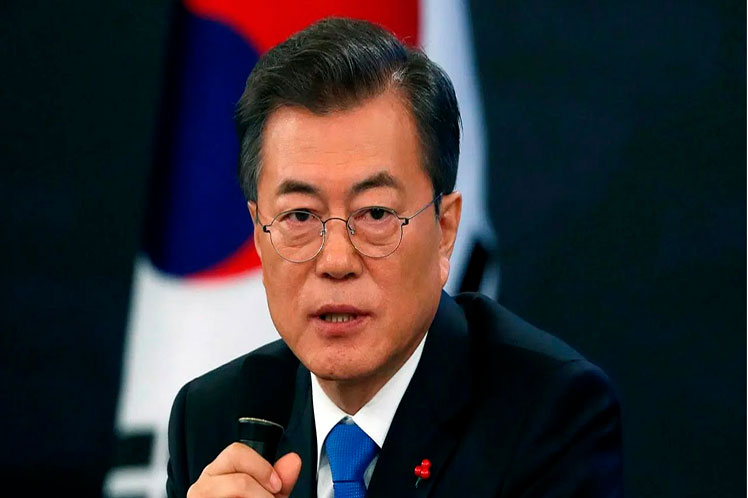According to presidential spokeswoman Kang Min-seok, the president recommended seeking ways to refer Japan’s decision to the International Tribunal for the Law of the Sea, including filing a court order.
Japan aims to release more than a million tons of polluted water into the sea in two years from the plant that was paralyzed by an earthquake and tsunami in 2011, after filtering it to remove harmful isotopes.
The plan provoked immediate opposition from neighboring countries, and South Korea summoned Koichi Aiboshi, Tokyo’s ambassador to Seoul, for an emergency meeting.
The South Korean Foreign Ministry issued a statement saying it had raised similar concerns with Washington after the US State Department said Japan’s decision was ‘transparent’ and in line with global security standards.
A series of protests against the measure by politicians, local officials, fishermen and environmental activists took place in South Korea on Wednesday, including in front of the Japanese embassy in Seoul and consulates in the port city of Busan and on Jeju Island.
For its part, China’s Foreign Ministry warned today that Japan’s decision will set a precedent for wastewater disposal.
The ocean is not Japan’s garbage can, the Pacific Ocean is not Japan’s sewers, the spokesman for the Chinese Foreign Ministry, Zhao Lijian, said in Beijing.
Japan expects all storage tanks at the Fukushima plant to be full by 2022 and plans to start discharging the radioactive water into the sea in 2023, in what is expected to be a decades-long process.
rly/abo/ga/lp









